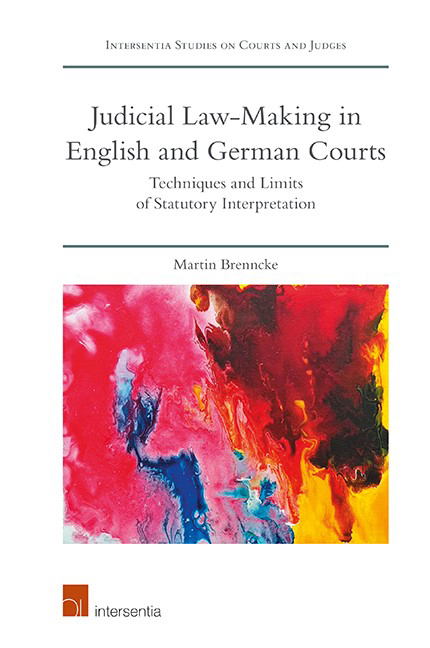Book contents
- Frontmatter
- Dedication
- Foreword
- Preface
- Contents
- List of Case
- List of Abbreviation
- Chapter 1 Introduction
- Chapter 2 Conventional Canons of Statutory Interpretation
- Chapter 3 Rights-Consistent Interpretation
- Chapter 4 The European Legal Duty of Conforming Interpretation
- Chapter 5 Conclusion
- Index
- About the Author
- Frontmatter
- Dedication
- Foreword
- Preface
- Contents
- List of Case
- List of Abbreviation
- Chapter 1 Introduction
- Chapter 2 Conventional Canons of Statutory Interpretation
- Chapter 3 Rights-Consistent Interpretation
- Chapter 4 The European Legal Duty of Conforming Interpretation
- Chapter 5 Conclusion
- Index
- About the Author
Summary
In Western democracies like Germany and the United Kingdom, the legal product of the democratic process is legislation. Legislation has to be read, understood and applied by a wide range of people. These include individual citizens, legal advisers, administrators and judges. When disputes arise, it is judges in courts who produce the authoritative final reading. But in doing that they have regard to how others are likely to have understood a statute. They also try to make sense of the legislation in the context of a range of other norms and values. Because legislation is everywhere and intrudes upon almost every legal relationship, statutory interpretation makes up a large part of what judges do and is one of the most important aspects of their work.
Working from the inside as a judge, the exercise of interpretation often feels more like an art than a science, even though one often feels a strong implicit sense of how to proceed. Yet the desirability of predictability in the application of law, which is inherent in the ideal of the rule of law, seems to demand that an objective science of interpretation be articulated and applied. Every legal system has to address the gap between the abstract statement of a law laid down in advance and its application to the facts of a particular case. There is no simple metric for weighing the relative normative force of different factors which may be relevant to giving determinate meaning to a statutory provision in its application to specific facts. Values of justice and reasonableness can operate as rather vague guides for how that gap is to be bridged. So can constitutional principles or a sense of hierarchy between norms bearing on the same subject matter as is addressed in the statute. Courts have to face up to the tension between positive statements of law in legislation and the pull of natural justice in spelling out the precise content of the legislative norm which they will identify as applicable to determine the dispute before them.
In the final analysis, it is the legal culture in a jurisdiction, generated within that jurisdiction‘s political and constitutional structures, which constrains judges in how far they feel able to go in imaginative interpretation of legislation.
- Type
- Chapter
- Information
- Judicial Law-Making in English and German CourtsTechniques and Limits of Statutory Interpretation, pp. vii - xPublisher: IntersentiaPrint publication year: 2018



